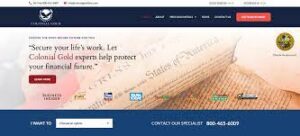101 Tax Secrets For Canadians: Smart Strategies That Can Save You Thousands by Tim Cestnick
 I recently borrowed 101 Tax Secrets For Canadians
I recently borrowed 101 Tax Secrets For Canadians from our local library and have found it to be extremely eye opening in terms of the numbers of ways Canadians can strategize in order to reduce the amount of taxes they have to pay. We can do so much more than just contribute to RRSPs to minimize taxes. The unfortunate thing is that most of us are just not aware of many of these strategies. So the next time you are tempted to complain about paying tax, try implementing some of these tips instead.
The book is written a lot like a textbook. Each chapter focuses on a different aspect of tax planning including strategies for retirement, self –employment, employees, family tax planning, estate planning, and more. The book is fairly easy to understand and it contains practical advice on building tax savings strategies. If you are interested in learning more specifics on how to save on taxes every year, I would definitely recommend that you read this book. Although tax laws continuously change, this book has been revised into a 2010 edition so everything is up to date.
The book gives you just enough information so that you will be motivated to talk to your accountant or tax specialist about how to take advantage of the strategies suggested, but not too much information so that you end up feeling overwhelmed. Although not every strategy in the book will apply to your current situation, there is definitely going to be at least one section that will apply to you, and if implemented correctly, could result in significant tax savings.
There are a number of ways Canadian families can save money by splitting income, paying family members a salary, etc. If you have children, there are also a lot of creative ways to save on taxes that you may not have thought about before.
To whet your appetite, here are a few tips included in the book that might interest you:
- Recognize that it’s possible to have too much in your RRSP.
- Consider leverage to accelerate wealth creation and provide tax deductions.
- Consider the impact that taxes can have on a non-registered portfolio.
- Claim all the employment deductions you are entitled to.
- Count the tax cost when splitting family assets.
The 101 tips included in the book all come with a short explanation and often with an example of someone who has benefited from the tip. I would definitely recommend this book to anyone with an interest in saving as much as possible on their taxes. Every little bit helps and it’s in your best interest to be proactive on keeping as much of your hard earned money within your family rather than giving it to the taxman.




No Comments